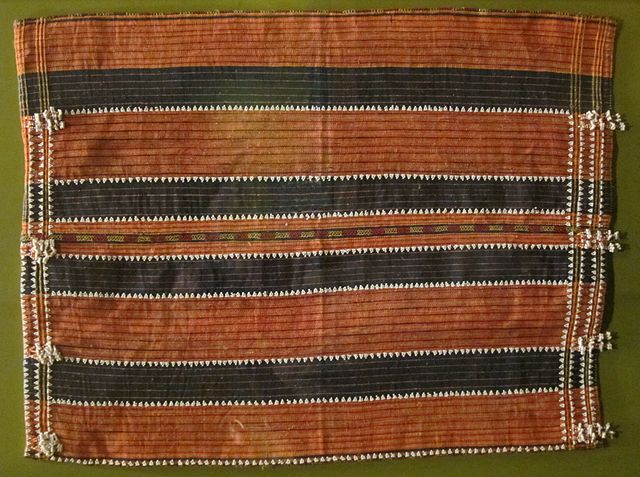Thammasat University students interested in ASEAN studies, political science, economics, history, sociology, geoeconomics, American studies, China, and related subjects may find it useful to participate in a free 26 November Zoom webinar on The Localization of the United States-China Rivalry: Cases from the Philippines.
The event, on Tuesday, 26 November 2024 at 9am Bangkok time, is presented by ISEAS – Yusof Ishak Institute, Singapore.
The TU Library collection includes several books about different aspects of the United States-China rivalry.
Students are welcome to register for the event at this link:
https://us06web.zoom.us/webinar/register/6217288685083/WN_Rvxqxs35QH2A8BAT6K3RHg#/registration
The event website explains:
Changes in foreign policy under the Marcos Jr. administration have highlighted the significance of protecting Philippine security interests amid an intensifying United States-China rivalry. The Marcos Jr. administration has reinvigorated the Enhanced Defense Cooperation Agreement (EDCA) with the United States and adopted more assertive responses to Chinese intimidation in the West Philippine Sea (WPS). Behind these policy shifts, however, is the important role played by subnational political units or local governments as critical arenas of superpower competition.
In some provinces in the Philippines, the U.S.-China rivalry has become a salient issue that has affected even the relationship between particular local governments and the central government. In the fight for access to prime geopolitical real estate, superpowers have increased their presence and activities that could politically influence local elites. The decentralized and dispersed nature of politics in the Philippines opens many paths for superpower influence. Local political elites can also leverage U.S.-China competition to benefit their parochial political interests.
This seminar will present research findings on how US and China activities in two geostrategic provinces in the Philippines have affected local political dynamics and also the foreign policy of the country. Cagayan province is located in northern Philippines near the Taiwan, while Palawan is proximate to the South China Sea.
This event is supported by Konrad Adenauer Stiftung.
About the Speakers
Edcel John A. Ibarra is Assistant Professor at the Department of Political Science, University of the Philippines Diliman where he also obtained a Master in International Studies degree. […]
Aletheia Kerygma B. Valenciano is Assistant Professor at the Department of Political Science, University of the Philippines. […]
Miguel V. Hermo is a research assistant at the Department of Political Science, University of the Philippines Diliman. […]
Moderator
Dr Aries Arugay is Visiting Senior Fellow and the Coordinator of the Philippine Studies Programme at ISEAS – Yusof Ishak Institute. He is also Professor and Chair of the Department of Political Science, University of the Philippines Diliman and Editor-in-Chief of Asian Politics & Policy […]

In September 2024 on the website of the Council on Foreign Relations, an article was posted explaining Why Tensions in the South China Sea Are Bolstering the U.S.-Philippines Alliance.
Manila has fully allied with Washington amid increasingly dangerous standoffs with Beijing in the South China Sea, heightening the prospect of a wider war.
Chinese leader Xi Jinping has continually projected China’s strength abroad, particularly in Asia, most notably to safeguard Beijing’s “core interests,” which includes the South China Sea (known in the Philippines as the West Philippines Sea). The sea itself is not only strategically critical because of a wide range of potential regional conflicts, a major trade waterway, and vital to a possible war over Taiwan, but it is also one of the world’s richest sources of fish and a potential major source of untapped oil. Since late 2013, China has steadily reclaimed land and militarized its positions in the South China Sea in an attempt to legitimize its territorial claims. In recent years, Chinese Coast Guard boats and other military vessels have confronted other ships transiting the sea to deter other claimant states.
In June, China’s Coast Guard brandished axes and other bladed weapons during a clash with Philippine manned vessels in the disputed Spratly Islands’ Second Thomas Shoal, an archipelago at the center of territorial disputes since the 1980s where there are now regular clashes between Chinese and Philippine forces.
Unlike other Southeast Asian states with territorial claims in conflict with China, which usually try to resolve disputes quietly with Beijing, the Philippines has openly bolstered its defense cooperation with the United States and publicly pushes back against China’s overlapping claims in the South China Sea. In late July, Washington and Manila signed an agreement containing $500 million worth of new defense aid to modernize the Philippine military and coast guard. The funding is meant to better equip the Philippine armed forces to counter Chinese activities in the South China Sea and increase the United States’ interoperability with Philippine forces. The Philippines has also built tighter defense ties with other major democracies, such as Germany and Japan, and some regional states, such as Vietnam, which has had repeated skirmishes with Chinese vessels in the Sea.
These steps have enraged China, which has increasingly harassed Philippine ships, often to the point of creating collisions or near misses between vessels by sailing close, ramming into them, or shooting water cannons at them, heightening the risk of injuries or death at sea. Analysts also note that areas for flash points are growing; Chinese and Philippine vessels collided in the Sabina Shoal in mid-August, marking the first time the two sides have clashed directly over the area. As the frequency and severity of these clashes have increased this year, the Philippines’ President Ferdinand Marcos Jr. stated that his country should “do more” to counter China’s “illegal actions.”
Is the recent agreement between China and the Philippines likely to reduce conflict across the disputed sea claims?
Probably not. The two sides recently came to what was called a “provisional agreement” to allow the resupply of Philippine sailors stationed on a grounded naval vessel at the Second Thomas Shoal. The deal also establishes a presidential hotline for both sides to communicate during major maritime crises.
However, the relatively narrow deal is unlikely to reduce conflict, given that China has not relinquished its claims to the entire sea, and in the past, China did not pick up the phone when U.S. leaders called during a crisis. Beyond the hotline, China will not concede much, and Manila is already claiming that Beijing has mischaracterized the pact’s limited scope. […]
(All images courtesy of Wikimedia Commons)


